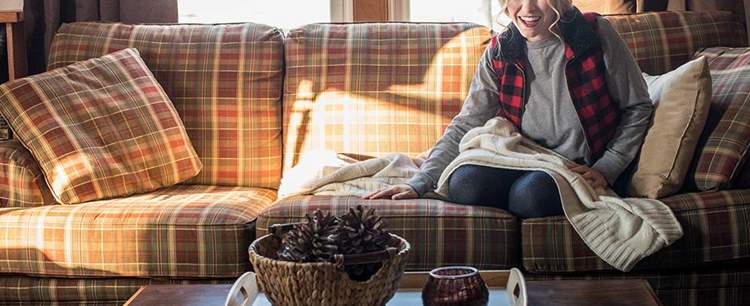Before you and your tenants batten down the hatches and settle in for what might be a long and chilly winter, it is that time of year once again to revise the preparations it’s worth making now rather than finding yourself well and truly caught out at the height of bad weather.
So, let’s take a brief look at what you can be doing to prepare for the winter ahead:
Outside
- even though you probably have a regular repair and maintenance routine for your let property, it is worth checking the exterior of the building before winter sets in;
- starting from the roof – where you’ll want to check for missing or loose slates or tiles – you might need to walk down to the end of the garden or across the street with a pair of binoculars to visually work your way down the outside of the building;
- whatever that inspection reveals, you are almost certain to have to clear the leaves and other debris from gutters and other rainwater goods;
Paths, steps, and driveways
- wintry weather is almost certain to bring ice and snow at some stage, with those elements widening any cracks in the paths or steps – fill them in now so that they are less of a hazard for the unwary when pavements begin to freeze;
Garden furniture
- while you are outside, ask your tenants to pack away any garden furniture to prevent it weathering or even rotting during the winter months – remind them that the shed or any outside storage area needs to be kept locked against burglars or other intruders;
The boiler
- boilers for hot water or the central heating have an uncanny knack for breaking down at the wrong moment – you won’t want concerned tenants telephoning to say the boiler has broken down just as you’re about to sit down to your Christmas dinner;
- if you are a conscientious and well-ordered landlord, you may have a standing order for your boiler to be serviced during the summer months (a slack period for the maintenance engineers);
- if it’s a cold winter, though, the boiler is likely to be working overtime – especially if your tenants are self-isolating or having to work from home – so, you might want to make sure that the boiler will see out the winter by fitting in a further service now, suggested an article in Landlord Today on the 9th of October, echoing some useful tips and suggestions from residential letting agents ARLA Propertymark;
- during the winter, warns the Deposit Protection Service, small cracks and crevices can turn into yawning holes and blocked downpipes become the source of damp;
Insulation
- it’s probably only in the cold weather that you and your tenants discover how well – or poorly – insulated is your property;
- if it is like the average home in the UK, the greatest heat loss is likely to be through the attic space – so a small investment in loft insulation may reduce the money spent by your tenants on energy bills, so encouraging them to keep the place warm and minimising the spread of damp and mould throughout your property;
- doing yourself and your tenants a favour in this way is also good for the environment – because it saves energy – and, thanks to the Green Homes Grant scheme, you might even be eligible for up to £5,000 of public money to complete your loft and wall insulation, and get a new boiler too;
Warm and dry
- an efficient, recently-serviced boiler and a well-insulated loft will go a long way to keeping your let property warm and dry, but there is more you might do to encourage your tenants to use energy efficiently;
- explain to them how to use the timer on the boiler or heating system, for example, and make sure they know where the mains water stop-cock is so that they can quickly turn off the supply if there is a leak or if a pipe bursts during freezing weather;
Ventilation
- having spent a good deal of time and effort encouraging your tenants how to keep the heat in and to use energy wisely, it might seem counter-intuitive to get them to open some windows every once in a while;
- adequate ventilation is essential to halting the spread of condensation – and the accompanying risk of damp and mould;
- encourage your tenants to open the windows a crack, therefore, in especially steamy areas, such as the bathroom and kitchen, and consider installing an extractor fan if necessary.
Getting prepared for winter means taking sensible precautions that are likely to help protect your property, go down well with tenants who are looking to manage their energy bills, and also help you run a profitable buy to let business – it’s likely to prove more than worthwhile.






